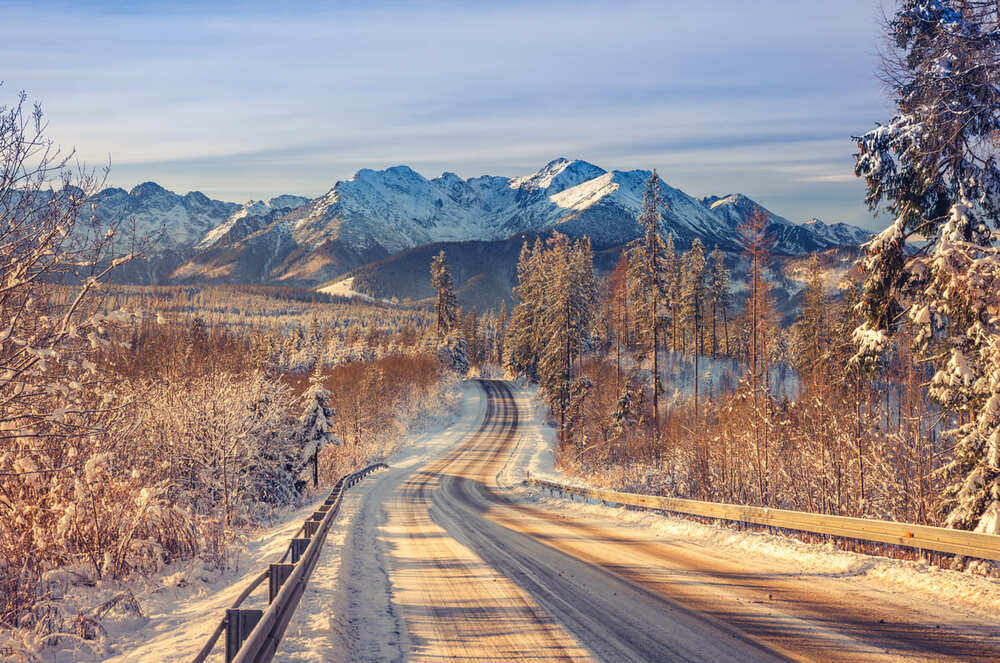Have current events lead you to question your future and safety? You are not alone. With the recent pandemic, the ongoing war in Europe and increasing crime, many people are on the hunt for a safer and more secure home. Let’s explore, based upon one credible source, what are the world’s top 10 safest countries to live in.
The 2022 Global Peace Index (GPI) is the world’s leading measure of national peacefulness, and ranks 163 independent states and territories based on levels of danger and safety. The GPI explores various political, social and economic factors which are considered paramount to a country’s security and stability on both national and international levels.
Unsurprisingly, European Union countries continue to dominate the list – as Europe remains the most peaceful region in the world.
Worth noting, while most of the top citizenship by investment destinations, such as Vanuatu and many Caribbean nations [St. Kitts and Nevis, Grenada, Dominica, St. Lucia, and Antigua and Barbuda] are widely considered by international security experts to be among the safest places to live, the GPI does not consider these countries due to their size.
So, what are the GPI’s top 10 safest countries to live in the world from 2022? Let’s take a look below.
10. Japan – Asia
Coming in as the 10th safest country in the world is Japan.
Japan’s strict gun control laws make it very difficult for criminals to acquire firearms, and the country has a zero tolerance attitude toward knife crime. Illegal possession of an offensive weapon or knife in Japan, could result in imprisonment.
Moreover, the Japanese government has invested heavily in tight security measures such as CCTV cameras, as well as high levels of security personnel at businesses and banks.
But it isn’t just this that makes Japan one of the safest countries in the world to live. Japanese culture places great importance on respect for others, high morals, and a commitment to peace. Such values are ingrained into society and play a huge role in contributing to the overall order and safety of the country.
9. Singapore – Asia
Renowned for its political security, low crime rates, and all-round high standard of living, this lively city-state is not only the 9th safest country in the world, but the safest country in the whole of Asia.
Singapore has zero tolerance towards crime. Law enforcement officials work tirelessly to keep the streets safe and harsh sentences are dealt to anyone breaking those laws. The country is well-organized and kept clean, and residents take pride in helping to maintain this.
Singaporeans, much like the Japanese, have respect for authority and law firmly ingrained into their culture, which contributes to the overall safety of the country.
8. The Czech Republic – EU/Europe
Ranked 8th by the GPI is the Czech Republic [officially Czechia], which is not only breathtakingly beautiful but an incredibly safe place to live for the entire family. It is also the 6th safest place to live in Europe and ranked 6th in the world for its ecology and cleanliness, with excellent drinking water, food quality, and a healthy living environment.
The Czech Republic has a long-standing history of stability and peace with very low crime rates, especially for violent crime. The Czech Republic is the only European country with a constitutional right to own a gun, is rated highly for safe communities, and is virtually terrorism-free.
The Czech Republic represents the beginning of the European Union’s domination of the Top 10.
7. Slovenia – EU/Europe
Slovenia, a EU small country with a population of just over 2 million, has a lot to offer. Situated in central Europe, this country is brimming with breathtaking natural beauty.
Slovenia is ranked seventh on the GPI. Arguably, the biggest danger you may face in Slovenia is falling into one of its beautiful lakes because you were distracted by the awe-inspiring landscape and the snow-capped alps.
Sandwiched between Austria, Hungary, Croatia, and Italy, Slovenia is far from any unrest. Slovenia has a low crime rate, which according to World Population Review is 22.28, (for comparison, the United States is more than double at 47.81). The low crime rates, along with the stable political environment, contribute significantly to the overall safety of Slovenia.
6. Portugal – EU/Europe
Considered by many in the crypto world as one of the EU’s best markets for cryptocurrency, Portugal is more than just a picturesque country with a gloriously warm climate and a friendly, welcoming nature; it’s also the 6th safest country in the world according to the GPI – and the third European Union country on the list thus far.
What makes Portugal safe? Well, it benefits from a firm rule of law which protects property rights and minimises government corruption. It has a long history of peace with its neighbors and has not been involved in any major wars for more than two centuries.
Portugal also boasts one of the EU’s most popular Golden Visa residency programs. Check out our guide to Portugal Residency by Investment and Golden Visas.
NOTE – The government of Portugal is terminating the existing Golden Visa program to replace it with an updated version eliminating the real estate option. Any investor looking to obtain residency in Portugal through the purchase of real estate must act fast to secure their spot in the current program before it terminates – which will happen when the new program is ready to go online.
5. Austria – EU/Europe
As one of the three EU countries in the Top 5, Austria, is the 5th safest country in the world according to the GPI – boasting a rich culture and history and holds its ranking due to several factors, including a strong economy and low crime rate.
Violent crime in Austria is one of the lowest in the world and is almost non-existent, in fact, making it another ideal European spot to live, work and raise a family. Rates of other crimes such as assault, kidnapping and armed robbery are also very low.
4. Denmark – EU/Europe
Denmark, an EU country, is often talked about as one of the safest countries in the world to live. According to the GPI it is rated as the 4th safest country in the world.
So why is Denmark such a safe place to live? In 2021, just 39 homicides were recorded, compared to the USA which had 22,900.
Denmark has a strong welfare system and economy, which minimises inequality and social unrest. It is a small country with a relatively close-knit population, which makes maintaining law and order much more straightforward. All of this contributes to Denmark’s ranking as a peaceful nation for its citizens.
3. Ireland – EU/Europe
The EU nation of Ireland conjures up images of friendly locals, lively pubs with hearty food and Guinness, as well as rolling green hills, and the GPI also ranks it as the 3rd safest country in the world. Ireland has a low crime rate, with very few homicide offences recorded in 2021. This is likely down to the country’s strict gun laws and their well-funded police force.
Despite its turbulent past, Ireland is largely free of terrorism and has had no major incidents in recent years. Its policy of military neutrality means it does not get involved in any active conflicts. From the breathtaking cliffs of Moher to the busting city of Dublin and the Temple bar, Ireland is a wonderful safe haven to work and live.
2. New Zealand – Oceania
New Zealand comes in at 2nd place on the GPI. There are many reasons why New Zealand is such a safe place to live. It has a relatively small population and a stable government with little political unrest. It also has low crime rates.
New Zealand is an island nation, thus has no countries bordering it, meaning that it is safer from external threats.
The country is prone to earthquakes and volcanic eruption, so it is important that residents are prepared and know what to do in the event of an emergency. With that said, there are strict building codes which help protect against the damage caused by earthquakes, and most New Zealanders are well-prepared for any potential disasters.
1. Iceland – Europe
Scenic Iceland lands 1st place as the safest country in the world to live – a spot it has held for 12 years in a row. While not an EU member state, Iceland is a member of the European Economic Area [EEA] and the European Free Trade Association [EFTA], which provides EU citizens and residents the same rights in Iceland as in EU countries.
Iceland has the lowest population in Europe, with almost 80% of the country being uninhabited. Much of Iceland consists of mountain peaks, deep fjords, glaciers, waterfalls, volcanoes, black sand beaches, and steaming lava fields that are almost otherworldly.
An island state like New Zealand, Iceland borders no countries making it is less susceptible to external threats.
Despite its status as the safest country in the world, it can be very prone to earthquakes as it sits atop the fault line between the Eurasian and North American tectonic plates.
Iceland has a tight-knit family-oriented community with an outstanding education system – a college degree is cheaper than one month’s rent.
Iceland proudly possesses a highly educated population, high employment rates, and like-minded people with a class-free social structure establishing a happier community with few reasons to commit crimes.
All these factors make Iceland an incredibly safe place to live – in fact, the safest place in the world.
Of course, this list only demonstrates the safest countries in the world, as recorded by one credible source, and does not mean or suggest that you cannot live happily and safely in other countries.
In fact, all of the countries which Astons assists HNWIs to acquiring residency or citizenship with have safety and security as a domestic priority.
It is also worth noting, that while not all of the EU countries on this list offer residency or citizenship by investment options, Astons’ EU residency and citizenship programs – Cyprus, Portugal, Spain, Greece, and Malta – can provide the right to live, study, and work in any other EU, EEA, or EFTA country.
Astons’ alternative citizenship services grant investors a greater sense of freedom, independence, and resilience against external circumstances and geopolitical shifts. With a second passport, investors gain flexibility to relocate or utilize it as a valuable resource to address personal or business challenges.
Presently, approximately 8 countries worldwide offer efficient and expedient pathways to obtain citizenship through investment – notably Turkey, Vanuatu, Dominica, Saint Lucia, Saint Kitts and Nevis, Antigua and Barbuda, Grenada and Malta.
For detailed information about these programs, please contact one of our worldwide offices and schedule a free consultation with an expert at Astons.













